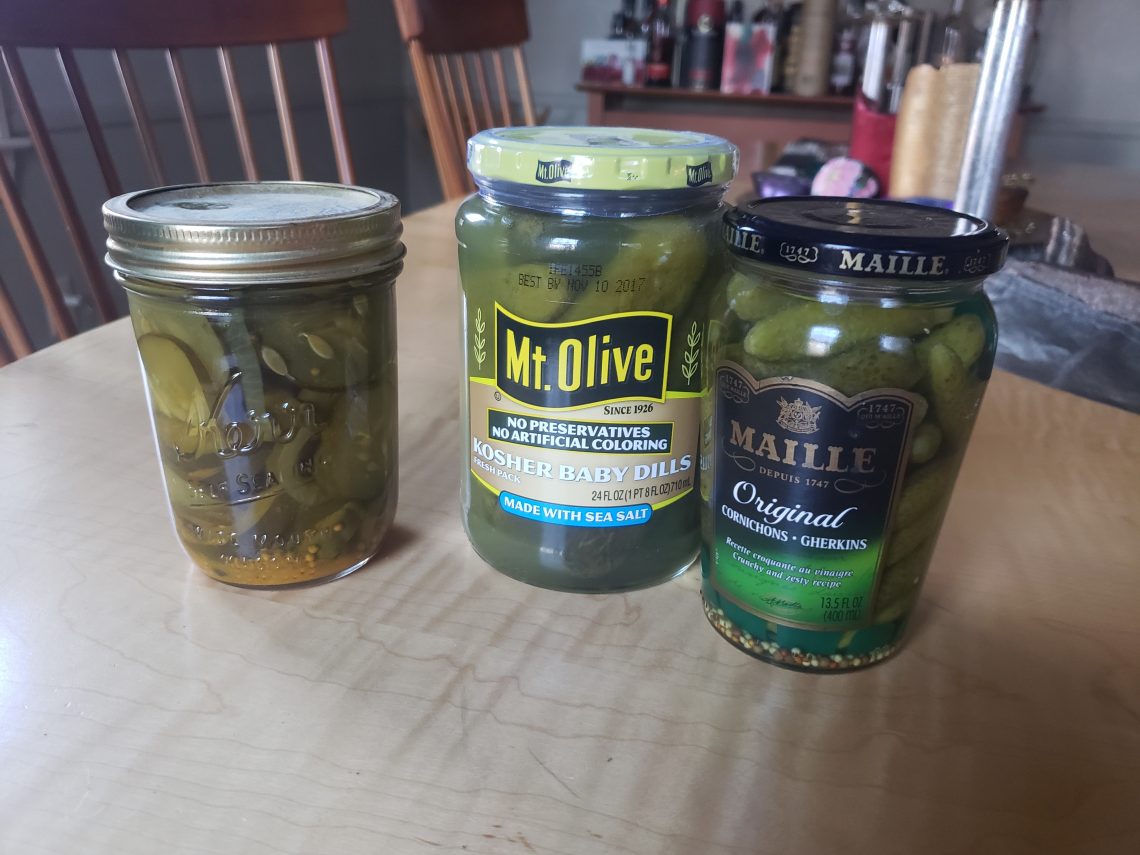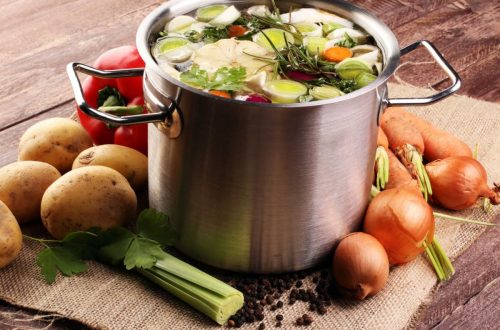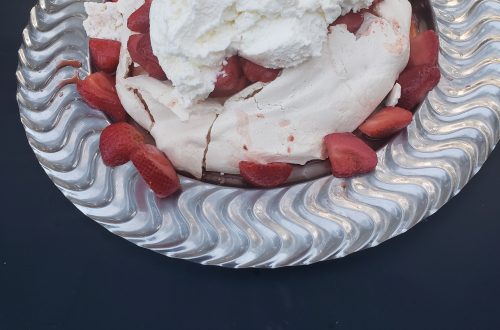
Wait, Don’t Toss that Pickle Juice!
It’s a new year, and a perfect time to up our game in creating tasty dishes for the dinner table. Let’s take another step in thinking about how to add or enhance the flavors of what we are creating on a daily basis. Not just salt and pepper or other herbs and spices; they’re used to enhance the basic flavors of the dish. I’m talking about learning how to make better use of acid – the substances that balance the flavors.
What started me on this quest was Christmas and the wonderful gifts I received from Mrs. Farmboy – two books: Aloha Kitchen about the foods of Hawaii and Salt Fat Acid Heat about understanding the elements of good cooking. While salt, in particular, enhances flavor, acid balances flavor. Like salt, you don’t need a lot of acid to unlock the nuances of a dish. Just a dash of acids such as vinegars can unlock the nuances of a soup, dressing, or sauce.
I began this examination by just trying to learn why two recipes in the Hawaiian cookbook, a macaroni salad and a potato salad, called for pickle juice. When you begin to investigate pickle juice for other uses, you find some interesting answers – like marinating the chicken used in the Chick-fil-A chicken sandwich to make it tender and flavorful. Dill pickle juice is also a flavor enhancer for rye bread and Jewish deli bread. And pickle juice is also found in beer cheese and pimento cheese. How about making your own dill pickle bread?
Get pickling
So, as you’re thinking of maybe amplifying your own recipes, here are some ideas of places to start experimenting. The next time you’re eating some hummus, try a splash of pickle juice just to find out how it impacts your enjoyment. If that works, how about including it in a gravy or sauce, say adding pickle juice instead of the lemon juice in hollandaise sauce, or in butter.
You could reuse the jar of pickle juice for pickling something else – say hardboiled eggs, onions, or garlic. Taking a cue from Chick-fil-A, maybe try marinating chicken or pork before cooking. Just marinate the meat in the juice and place it in the refrigerator for 6 to 8 hours or overnight before cooking. If these ideas are working for you, try it in a salad dressing instead of vinegar or add it to mayonnaise for a sandwich spread, or to liven up your barbecue sauce. You can also add some to the water for poaching fish or boiling potatoes for a different flavor.
Or get pickled
As to health concerns, some recommend that you can even drink pickle juice, as the sodium content can help prevent muscle cramps. Or just down a shot of pickle juice after a shot of whiskey for something called a pickleback. And there’s always the pickle juice version of a dirty martini.
I think it’s worth a try. What about you?
To comment, please click on “Read in Browser” or on the headline to view the blog on the website. You can log in and comment at the end of the blog to share your thoughts and start a discussion.
If you’d like to share the blog, click on the Facebook icon or one of the others. Thanks!





One Comment
Catherine Garnache
My favorite New Orleans red beans and rice recipe comes from a Creole woman who tells everyone that her recipe has a ” secret ingredient”. Then she proceeds to tell everyone her ” secret ingredient”: pickle juice. Thought you’d enjoy.
Catherine